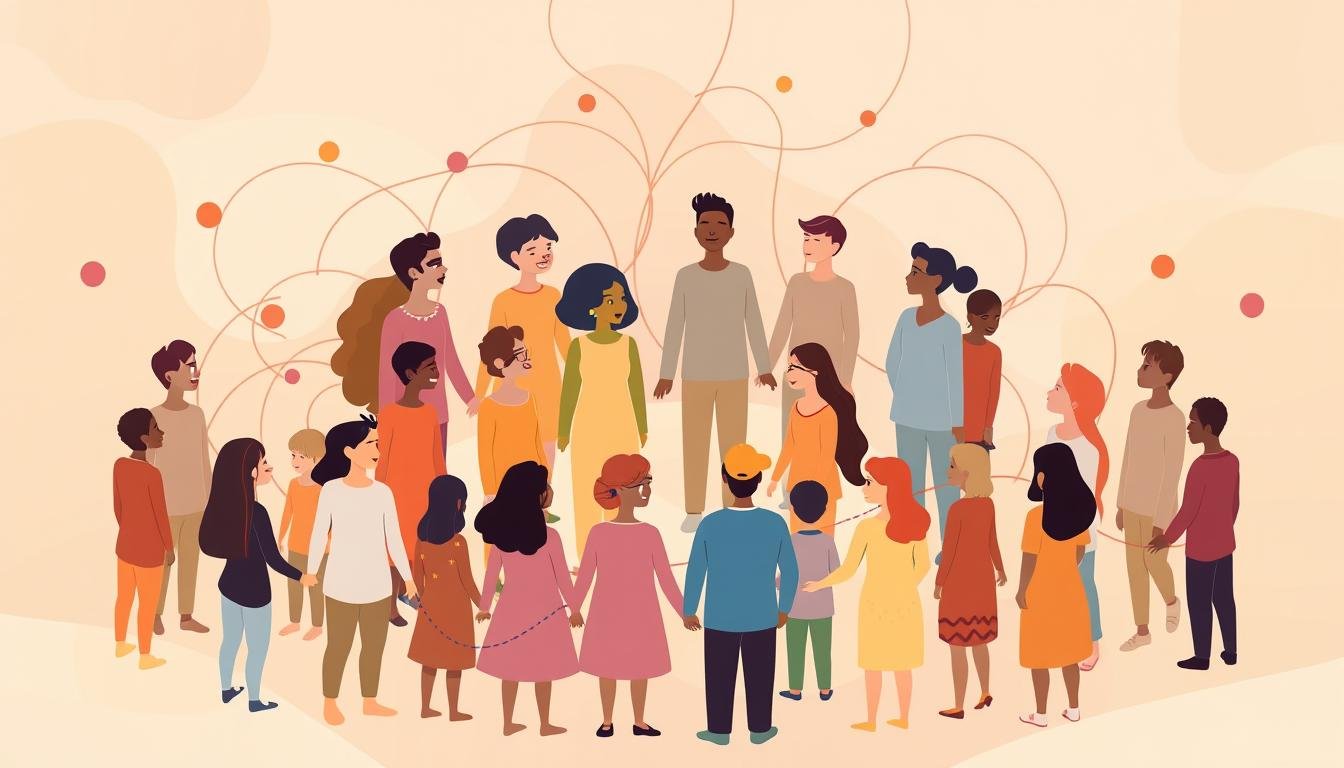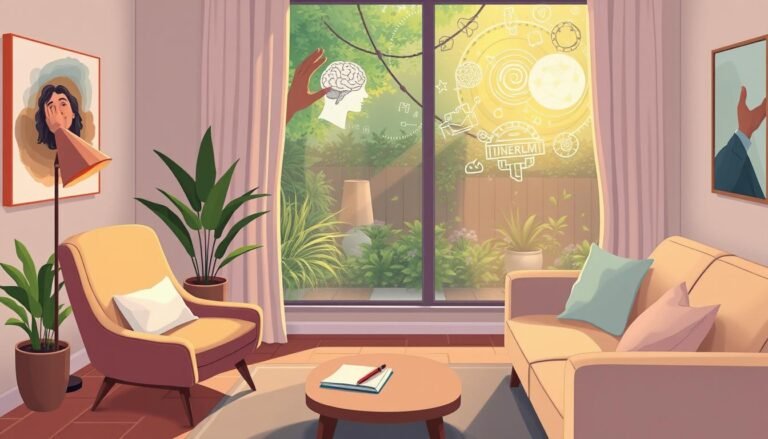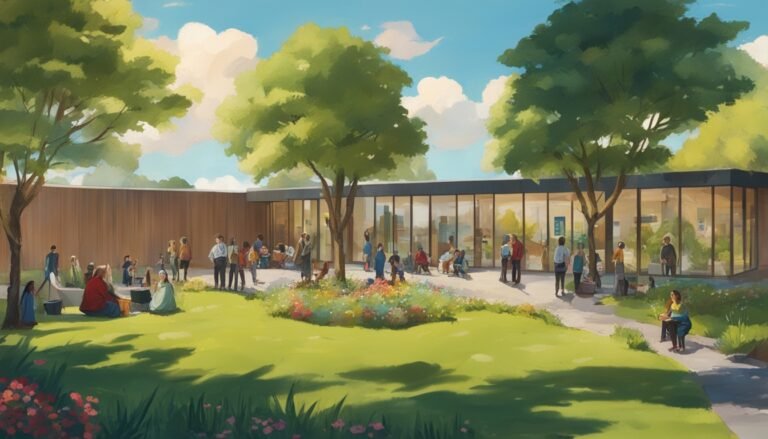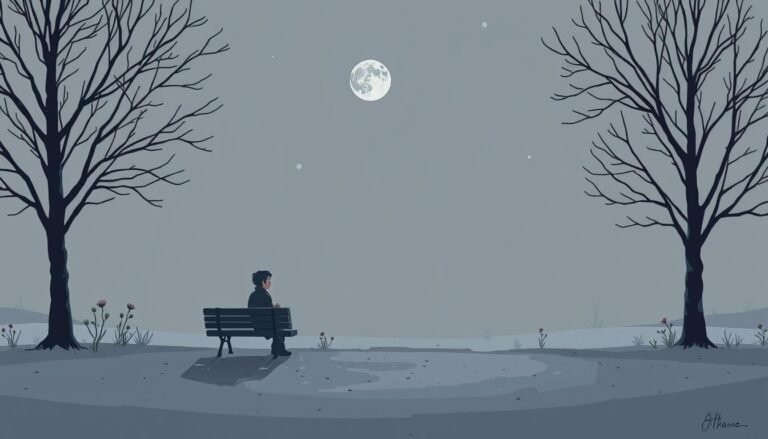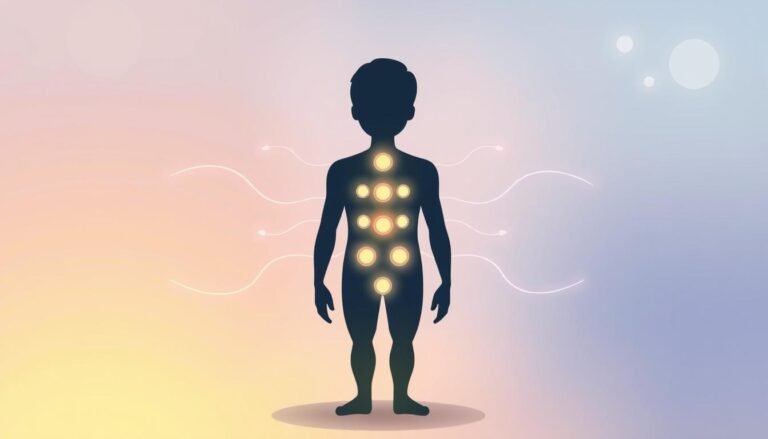Exploring Relational Cultural Theory: Connections
Ever wondered why some relationships feel great while others are exhausting? The answer might be in Relational Cultural Theory (RCT). This groundbreaking approach is changing how we see human connections.
RCT started in the 1970s, during the feminist movement. It says our happiness comes from our relationships, not just ourselves. Developed at Wellesley College’s Stone Center, it’s been a big hit, selling over 200,000 copies and translated into 20 languages.
At its heart, RCT talks about how good relationships help us grow. It looks at how mutual understanding and connection help us develop. It also highlights power and culture, giving a voice to those often ignored in psychology.
Recent science backs RCT, showing our brains grow with connection. This news brings hope for a more empathetic world. As we explore RCT, we’ll see how it can change our relationships and us.
Understanding Relational Cultural Theory
Relational Cultural Theory (RCT) started in the late 1970s. It changed how we see personal growth. It says that real connections and culture matter a lot. The American Psychological Association calls it a top theory in North America.
Origins and Development at Stone Center
Four women at Wellesley College’s Stone Center created RCT. They wanted to fix old models that made people feel bad about themselves. These models pushed for independence, but often left people feeling not good enough.
Core Principles and Assumptions
RCT believes we grow by connecting with others. It values empathy and helping each other grow. It talks about five good things that happen in strong relationships:
- Increased vitality and energy
- Enhanced ability to act
- More accurate self-image and understanding of others
- Greater sense of worth
- Increased motivation to connect with others
Cultural Context and Power Dynamics
RCT sees how culture and power affect our connections. It suggests using “power with” and “power for” instead of “power over.” This idea helps in counseling, fighting for justice, and teaching.
| Aspect | Traditional Models | Relational Cultural Theory |
|---|---|---|
| Focus | Individual independence | Interconnectedness |
| Growth Marker | Autonomy | Healthy relationships |
| Power Dynamics | “Power over” | “Power with” and “Power for” |
The Power of Growth-Fostering Relationships
Relational-Cultural Theory (RCT) shows how important good relationships are for growing. It’s used in psychology, education, and community work.
The Five Good Things Model
At the heart of RCT is the “Five Good Things” model. It talks about the good parts of real relationships:
- Increased sense of vitality and zest
- Enhanced clarity about oneself and others
- Boosted creativity and ability to take action
- Heightened feelings of worth and empowerment
- Stronger desire for deeper connections
Building Authentic Connections
Real connections need openness and trust. RCT says that breaking connections happens, but we can build back. This is called relational resilience.
Impact on Personal Development
Good relationships are key for personal growth. They help people grow together. Schools like Antioch and Carlow use RCT in their programs.
It’s not just in schools. Open Circle uses RCT for social and emotional learning in elementary schools. This shows how it helps from a young age.
Mutual Empathy and Connection
Mutual empathy is at the heart of Relational Cultural Theory (RCT). It’s about being open to feel and be felt by others. This is more than just understanding; it’s about feeling, seeing things from another’s view, and knowing ourselves.
In RCT, connections are key for growth. The theory says we grow through our relationships, not alone. It teaches us to work with shame and build real connections in therapy.
Science backs up RCT’s main ideas. Studies show that being connected is good for us, and being alone can hurt. RCT believes that being together makes us kinder, while being apart makes us suffer.
“Experiences supporting connection lead to pro-social behavior.”
RCT points out that forming connections is hard because of paradoxes. These are when we want to connect but fear being open. Overcoming these paradoxes is vital for real relationships.
| RCT Element | Description |
|---|---|
| Mutual Engagement | Ongoing process creating special connections |
| Mutual Empathy | Willingness to be moved by others’ experiences |
| Mutual Empowerment | Fostering growth and strength in relationships |
By valuing mutual empathy and tackling paradoxes, we can make deeper connections. This not only improves our personal lives but also changes therapy, education, and how we interact with each other.
Neuroscience and Relational Development
Neuroscience shows how vital relational development is. Recent studies have uncovered how brain plasticity helps form connections. This research proves our brains can change, affecting our ability to connect with others.
Brain Plasticity and Connection
Brain plasticity is key in forming relationships. Studies on neglected orphans from World War II show how social deprivation affects the brain. This shows social connections are crucial for brain development and well-being.
Social Pain Theory
Social Pain Theory gives us new views on human connections. It shows our brains react to physical pain and social exclusion the same way. This proves social connections are vital for our survival.
Empathic Development Research
Research on empathic development helps us understand better relationships. The C.A.R.E. program, for example, aims to build neural pathways for closeness. This shows the importance of healthy relationships for our overall well-being.
| Aspect | Impact on Relational Development |
|---|---|
| Brain Plasticity | Enables lifelong potential for change and connection |
| Social Pain Theory | Highlights biological importance of social connections |
| Empathic Development | Enhances relational capacities through targeted programs |
These neuroscientific findings highlight the need for growth-promoting relationships. They give us a biological reason for our deep need for connection. They also show ways to improve our skills in forming relationships.
Breaking Away from the Separate-Self Paradigm
The separate-self idea has been a big part of Western psychology and culture. It focuses on being alone and independent. But, Relational-Cultural Theory (RCT) offers a different view. It says we grow by connecting with others.
Cultural Impact on Individual Identity
Our culture shapes how we see ourselves and others. In Western societies, we often focus too much on being alone. This makes us forget how important relationships are for our growth.
RCT says our identities come from our connections with others. It shows how power and society affect our well-being. This helps us understand how culture shapes our sense of self and our bonds with others.
Moving Beyond Individualism
Leaving behind the idea of being alone opens up new ways to grow and heal. RCT teaches us to value being together and supporting each other. This can make our relationships more real and our sense of belonging stronger.
| Separate-Self Paradigm | Relational-Cultural Approach |
|---|---|
| Emphasizes independence | Values interdependence |
| Focus on individual achievement | Recognizes collective growth |
| Views isolation as strength | Sees connection as empowering |
By following RCT, we can build more welcoming and supportive places. This change helps us understand human growth and well-being better. It encourages us to see the strength of connection in our lives.
Building Relational Resilience
Relational resilience is key in Relational Cultural Theory (RCT). It’s about forming and keeping relationships that help us grow. This idea is more than just coping alone; it’s about the strength of connections in facing life’s hurdles.
RCT started in the late 1970s. It changed how we see relationships over individualism. It shows how important connections are in our lives.
Relational resilience means learning to deal with breaks, disagreements, and power issues. It’s about building real connections that help everyone grow and feel empowered. Research shows these strong relationships boost self-esteem and reduce stress, especially for sexual minorities.
Working on relational resilience improves our well-being and fights for social justice. It teaches us to be open and true in our interactions. RCT-based methods help build this resilience, changing how we see personal growth and well-being.
Source Links
- Relational-Cultural Theory: Fostering Healthy Coexistence Through a Relational Lens
- The Development of Relational-Cultural Theory
- What is Relational-Cultural Theory?
- A Relational-Cultural Framework: Emphasizing Relational Dynamics and Multicultural Skill Development – The Professional Counselor
- How Relational Cultural Theory Helps Us Understand the Transformative Power of OST – National Institute on Out-of-School Time
- What is RCT – International Center for Growth in Connection
- The Power of Connection: Recent Developments in Relational-Cultural Theory (2013-08-09): Judith V. Jordan: Amazon.com: Books
- A relational-cultural model: healing through mutual empathy – PubMed
- Relational Cultural Theory and Field Education : Field Educator
- The Neuroscience of Relational-Cultural Theory and Clinical Practice
- A Relational-Cultural Theory of Human Development: The Power of Connection
- ‹ Text
- Understanding Relational Cultural Theory – ADR Times
- The Conditions under which Growth-Fostering Relationships Promote Resilience and Alleviate Psychological Distress among Sexual Minorities: Applications of Relational Cultural Theory

